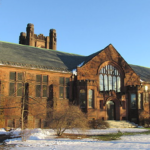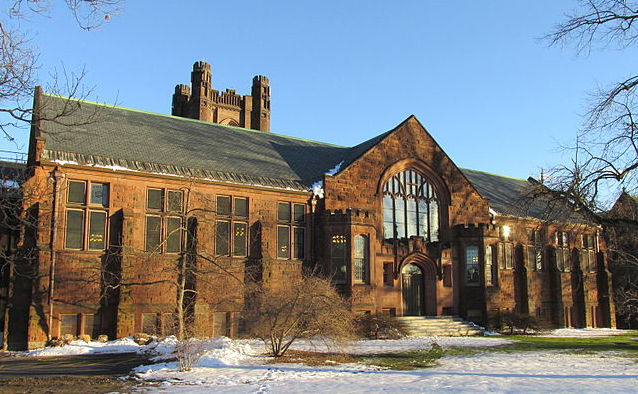I routinely talk to students who are interested in graduate-level study of the history of Christianity. What kind of program should they pursue? It makes a big difference whether you go into a religion/theology program, or a history department. For example, Justin Taylor and I both write about religious history, but his doctorate is from the Southern Baptist Theological Seminary, and mine is from Notre Dame’s History Department.
There can be substantial differences between standalone seminaries and research universities (including religion departments at universities) in terms of the Christian mission (or absence thereof), the types of publishing you are encouraged to do, and the options for doing graduate work in residence or from a distance. In general, seminaries have more options for distance learning, while university-based programs in the United States tend to expect students to be in full-time residence and work as teaching assistants. Teaching assistants earn modest stipends and get tuition waivers. Seminaries generally have a more pastoral and church-driven focus, while universities are more likely to be training PhDs for academic jobs alone.
In theology, religion, and history programs, you could end up writing fairly similar dissertations if you focus on the history of Christianity. But the types of course work you do in those programs can vary considerably, as can the types of courses you might teach if you do land an academic job.
People in religion/theology programs who work on the history of American Christianity are likely to emerge with a better understanding of the longer and geographically broader story of church history, while people in history programs may get a better background in the broader themes of American history (political/cultural history, and so on) or of whatever region they focus on. Likewise, people with degrees in religion/theology are more likely to teach church history courses as well as ones in Bible/theology/religion. People with degrees in history are likely to teach introductory surveys in American or world history along with upper-level courses in religious history.
For example, I routinely teach the America to 1877 survey at Baylor, plus an American Legal History undergraduate class, in addition to graduate courses in American religious history. I have no training to teach a college-level course in Bible, and would have little preparation for teaching a broad church history course, especially on issues before 1492.
These kinds of questions come up when I post lists of books like I did last week (“Five Great Books on the Puritans“). Because of my training and teaching responsibilities in history courses, I tend to know the work of specialists who teach in history departments. So it is no surprise that my list included people who teach/taught in history departments at Yale and Harvard. Those types of books tend not just to be concerned with theology per se, but theology within its historical context and cultural milieu. Jill Lepore‘s book is perhaps the most representative along these lines, as she teaches in the history department at Harvard, and in The Name of War is asking how Puritan theology and history-writing was formed in the context of war with Native Americans.
Maybe the best way to think about graduate school is to think of the favorite books you’ve read on your prospective topic. Who wrote it, are they still an active scholar, and where do they teach? Do they have graduate students? That line of thinking may help you focus your interests. Especially if you are looking to get an academic job, you really need to pick a doctoral program for the faculty more than the institution. You also need to have a pretty clear sense of who your prospective doctoral adviser would be at that school. (For example, Notre Dame is a great school, but I really went there to study with George Marsden and the rest of the American history faculty in their history department.)
You also need to be realistic about your prospects for admission and apply to an appropriate range of schools. If you don’t have stellar GRE scores (verbal and analytical) and grades, you’re not likely to get into the top programs, which can be astoundingly competitive. You may really like religious history, but that’s hardly enough to get you in at elite programs.
Also be realistic about the financial side of graduate school, and job prospects when you get out. Some programs will require you to pay tuition, others won’t. Some will give you a stipend for working as an assistant, others don’t have many opportunities for work in the department. Especially if you are hoping to get an academic job, it is a terrible idea to go into debt (or further into debt) in a doctoral program. Just don’t do it, because no program can guarantee that you’ll get an academic position. Some programs are consistently getting few of their doctoral students academic positions. If you are admitted to a program, you need to ask questions about their success in job placement. It’s not the end of the world to get a PhD and then pursue employment in a non-teaching field—many people do that. But it’s an awful idea to go into debt to get an academic doctorate with uncertain job prospects.

















